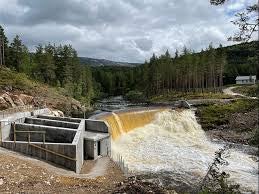The $12.7M financing is additional to US$40M that the Bank provided to Malawi in 2005 through the Irrigation, Rural Livelihoods and Development project (IRLADP) whose aim is to improve agricultural productivity and incomes through irrigation development. The large schemes totalling 1797ha and funded by Government are: Muona in Nsanje, Likangala in Zomba, Nkhate in Chikhwawa, and Limphasa in Nkhata Bay, while the other districts benefitting with smaller schemes are Chitipa and Rumphi in the north, Lilongwe, Dedza and Salima in the centre, and Phalombe and Blantyre in the south.
“So far over 1500 hectares of land are already being irrigated through the completed small schemes. When all are completed, we expect 3200 hectares of land to be irrigated. This will significantly help ensure food self sufficiency at household level,” said Sandra Bloemenkamp, the World Bank’s Country Manager for Malawi. Speaking at the signing of the financing agreement, Ms. Bloemenkamp said the Bank is keen to help Malawi consolidate and sustain the achievements it is making in food security.
Cosigning the financing agreement, Malawi’s Minister of Finance Honourable Ken Kandodo said the Government requested this additional financing to cover cost overruns in the rehabilitation of these main schemes and development of other smaller schemes. He added that some of the funds will be used to scale-up the provision of the technical and managerial capacity, and market access support required for sustainable small-scale irrigation development in the country.
Malawi’s crop production continues to be influenced by dependence on rain-fed farming, given the low levels of irrigation development. “With the changing weather patterns and high incidences of drought in our region, there is a need to invest heavily in irrigation farming so that our people are cushioned against the risk of drought,” said Kandodo.
At present, total formal or semi-formal irrigated area in Malawi is 90,000ha against a potential area of up to 700,000ha. The country has previously faced extended periods of dry spells which significantly affect crop production. Major droughts have occurred in 1991/92, 1993/94, floods in 1997/98 and 2000/01, and drought again in 2004/05 and intermittent pro-longed dry spells in 2009/10. The government is therefore investing in irrigation development which has the potential to improve yields and provide at least two harvests per ha to the small farmers in a given year.






